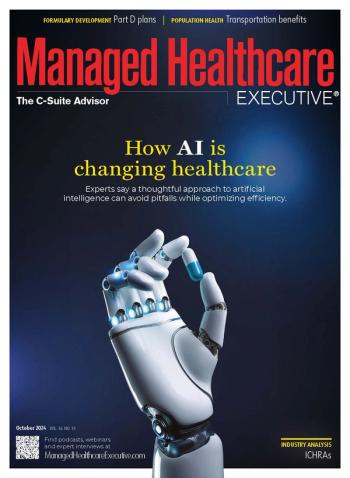
Online research captures audience insight, competititve data
For anonymity and 24-hour-a-day convenience, no other research methodology rivals the Internet.
With The Lure Of Fast, reliable market intelligence at a nominal cost, the appeal of online research is rapidly escalating. Through online surveys, focus groups, bulletin boards and other Web-based research techniques, managed healthcare executives can quickly garner valuable insight about their employees, clients, members, brokers, network providers and other audiences to make better business decisions.
Both business professionals and academics are recognizing the potential for using the Web to conduct research, partially because of the sheer number of potential respondents online today. While marketing research spending remained relatively flat during the last few years, online research is forecasted to grow an average of 30% annually over the next two years, and is expected to account for 29% of about $3 billion to be spent on survey research in 2005, according to Inside Research (January 2005).
"Marketing research can be an invaluable tool for decision making in many different facets of a managed care organization. Historically, we have used it for formulating product design prior to the introduction of new products in the market, assisting the organization in establishing brand recognition, and evaluating market expansion opportunities," says Bill Epling, board chairman of the Ohio Association of Health Plans and regional vice president and CFO of The Health Plan/HomeTown Health Network in Massillon, Ohio.
CAPITALIZING ON THE ADVANTAGES The growth of online research can be attributed to its many advantages-timely, reliable data collection providing real-time, instant access to target audiences' opinions at reduced costs.
The Internet allows response, which are automatically tracked, to be collected in a matter of hours. Since Web surveys are easier and more convenient to complete, response rates can be significantly higher, resulting in increased data accuracy and reliability. With fewer resources needed for recruiting and incentivizing respondents, significant cost savings are achieved.
There's the potential for efficiently locating hard-to-find respondents or those who are reluctant to participate in more traditional research. Caller I.D. and do-not-call lists have negatively impacted the response rate for phone surveys.
"HomeTown has used online research to identify regional product and market trends," Epling says. "We were able to quickly tap into opinions of brokers throughout Ohio and use the data to refine our approach with them."
For anonymity and 24-hour-a-day convenience, no other methodology rivals the Internet. There is a remarkable ability to collect information about a wide variety of topics, many of them quite personal in nature. Recent studies have indicated that people are much more willing to answer questions on sensitive issues, such as aging, caregiver issues, disease, and prescription use, on the Web than they are in phone or face-to-face interviews.
When Ohio-based Sky Financial Group embarked on a multi-year strategic plan to move from a traditional banking model to an integrated financial services company, it needed to create a change-adept environment that would allow more than 3,000 employees to embrace a new vision.
An online benchmark survey was conducted to assess employees' perceptions of communication vehicles and practices, to identify barriers that could limit effective communication, and to benchmark employees' awareness and understanding of the company's vision.
"The online survey provided a convenient way for employees to candidly share their opinions," says Phil Clinard, Sky senior vice president. "For example, we learned that while it would be vital for change to be led from our senior management, the immediate supervisors were the preferred communicators among the employees, and they needed the right tools to communicate the case for change."
The multimedia nature of the Internet creates the opportunity to easily share visuals of marketing concepts and communications tools. Audio and video can be embedded into surveys for quick downloading. A researcher can use virtual reality software that lets visitors inspect realistic three-dimensional models of products and services being studied-thus improving the integrity of the research.
Newsletter
Get the latest industry news, event updates, and more from Managed healthcare Executive.























